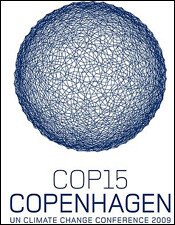
St. Kitts – Nevis PM At Copenhagen Climate Change Conference
Basseterre, St. Kitts – Nevis
December 17, 2009 (CUOPM)
St. Kitts and Nevis Prime Minister Hon. Dr. Denzil L. Douglas is among Caribbean Heads of Government who will be making presentations at the 15th Conference of Parties (COP15) of the UN Framework Convention on Climate Change (UNFCCC) in Copenhagen.
Prime Minister Douglas is among 100 Heads of Government from 129 countries at this critical event. Leaders will make presentations at the High Level Segment which started on Wednesday 16 December.
CARICOM said presentations will be made by, Rt. Hon. Hubert Ingraham, Prime Minister of The Bahamas; Hon. Maxine McClean, Minister of Foreign Affairs, Barbados; Hon. Dean Barrow, Prime Minister of Belize; Hon. Tillman Thomas, Prime Minister of Grenada; H.E. Bharrat Jagdeo, President of Guyana; Hon Dr. Kenneth Baugh, Deputy Prime Minister of Jamaica;
Hon. Stephenson King, Prime Minister of Saint Lucia; Hon Dr. Denzil Douglas, Prime Minister of St. Kitts and Nevis; H.E. Runaldo Ronald Venetiaan, President of Suriname; and Hon. Patrick Manning, Prime Minister Trinidad and Tobago.
CARICOM Secretary-General His Excellency Edwin Carrington and Assistant Secretary-General for Human and Social Development, Professor Edward Greene are also in Copenhagen, along with Dr. Kenneth Leslie, Executive Director of the Caribbean Community Climate Change Centre (CCCCC) who is leading the technical coordination for CARICOM at the conference.
CARICOM is presented its perspective on the issues at stake in the Conference and its programme of action for surviving the adverse effects of climate change, in a special event at the Crowne Plaza Hotel, Copenhagen on 15 December under the theme “˜1.5. to Stay Alive’.
The 1.5 degrees centigrade refers to the limit of the rise in global temperature which the Caribbean is proposing in order to minimise the effects of climate change on the countries of the Region.
The four major elements of the international agreement being sought in Copenhagen are: How much are the industrialized countries willing to reduce their emissions of greenhouse gases? How much are major developing countries willing to do to limit the growth of their emissions? How is the help needed by developing countries to engage in reducing their emissions and adapting to the impacts of climate change going to be financed? And how is that money going to be managed?